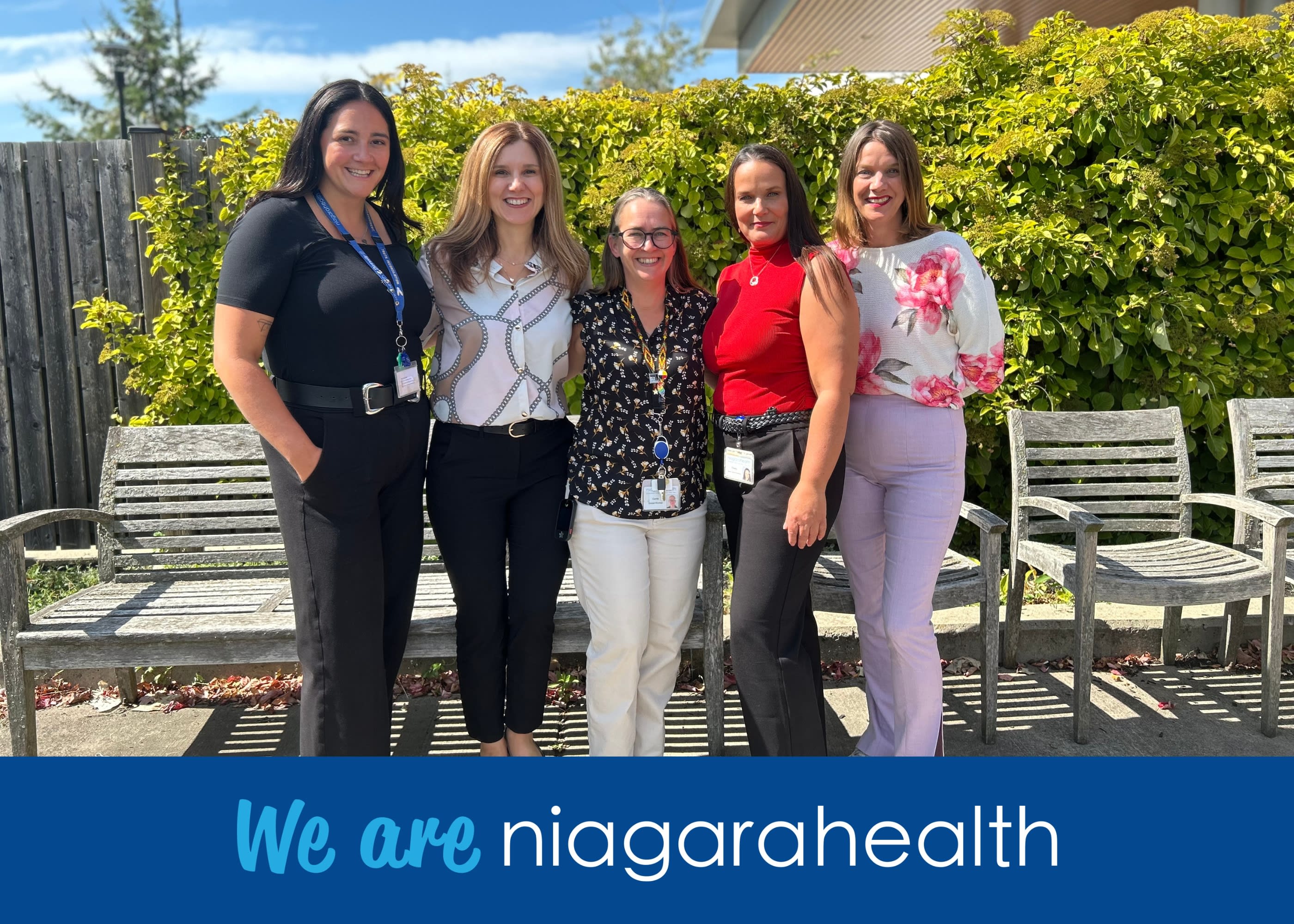We are Niagara Health is a series of stories that celebrates the incredible people working and volunteering in our organization and how they make a difference in the lives of patients and coworkers every day.

Natalie Doucet, Biljana Crevar, Carrie Vanderform, Charity Beland and Laura Harsevoort are working together to integrate reconciliation into care on the Women’s and Babies, Pediatrics and NICU units.
Whether supporting a mother in the NICU or walking alongside a pediatric patient’s family, Carrie Vanderform shows up with one goal: to navigate complex situations with compassion and respect.
As a social worker working mainly on the fourth floor of the Marotta Family Hospital, she works across Women’s and Babies, Pediatrics and the NICU. Her work focuses on emotional support, advocacy and connecting families to resources while always listening to the patient’s voice.
“Every person has their own story,” Vanderform says. “My role is to honour that and support them in ways that are meaningful to them.”
Vanderform was recognized by Niagara Health’s Indigenous Health Services and Reconciliation (IHSR) team for her work in helping embed culturally safe care practices into her unit. One of the ways she does this is by offering patients the option to engage with the hospital supports available: Indigenous Health Services, Spiritual Care and Social Work.
She explains to each patient that they are the centre of their care and she gives space for them to choose what feels right. “Something as simple as being offered choice can help build trust,” she says. “It gives people the space to say what they need/want.”
When asked about special moments in her career at Niagara Health, she points to the hospital relationship agreement with the Indigenous Primary Health Care Council as a milestone in this work. The agreement formalizes a shared commitment to honouring Indigenous ways of being and knowing in clinical settings.
“We’re learning how to create safer spaces. That means making room for traditional medicines, cultural practices and community-based supports – all within the walls of the hospital.”
Vanderform practices cultural humility in every interaction, especially when supporting patients who identify as Indigenous. She is mindful of the history social work carries, particularly in relation to child welfare.
“My title alone can be triggering for some,” she says. “That’s why I approach care by listening first – and if a patient doesn’t want me involved, I respect that completely.”
One of the most meaningful parts of her social work journey has been witnessing the creation of the Gathering of Good Minds room. The room, located on the first floor of the Marotta Family Hospital, is a space dedicated to Indigenous patients, families and care teams to come together for reflection, ceremony and healing.
“It’s more than just a room, it’s a reflection of our willingness to honour culture in real, tangible ways.”
She believes reconciliation in healthcare has to go beyond words. It requires ongoing effort, relationship-building and a willingness to face uncomfortable truths.
“We still have a long way to go, but we’ve also come a long way. I’ve seen the impact even small acts of listening and learning can have,” says Vanderform.
Vanderform credits the Indignenous Health Services & Reconciliation team, leadership on her unit and leadership across the organization for making this work possible and hopes that others will feel inspired to take part.
“Reconciliation doesn’t belong to one team, it belongs to all of us.”
On challenging days, Vanderform draws strength from her colleagues and the people she serves. Having once been supported by social workers herself, she brings lived experience to every interaction.
“It means something to sit on the other side of the desk. I want patients to feel heard, respected and supported just like I did when I needed it most.”

